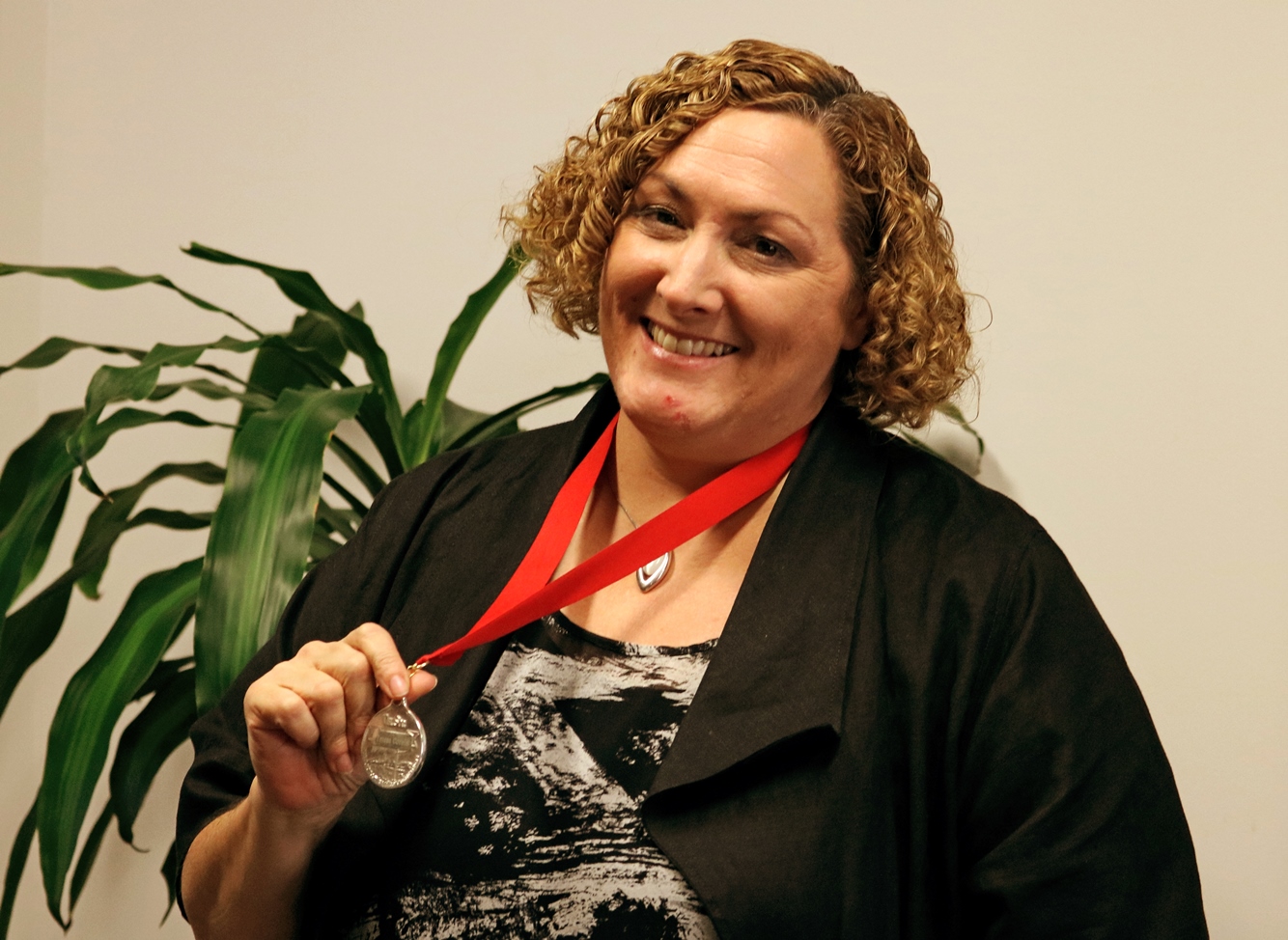Key Dates
Next Grant Round:
Applications for funding will open early 2025.
> Information about our Grants Program
Independent Grants Panel:
Results of the recent EOI will be notified Dec 2024.
> Information about our Panel
We can help: grants@accan.org.au
or phone 02 9288 4000
Subscribe to Grants Program mailings
The Australian Communications Consumer Action Network (ACCAN) has launched its ‘Get Connected’ consumer resource which includes a mapping tool and a series of useful steps for consumers who are struggling to get an ADSL connection while they are waiting for NBN to arrive in their area. Issues accessing ADSL services have become a common complaint for consumers, particularly those who move into new areas.
The mapping tool helps consumers to understand the reasons that may be preventing them from getting an ADSL service. For example, if there are few ports available at the local exchange, if the neighbourhood is too far from an exchange or if the exchange is not ADSL enabled. The NBN will be connecting all areas and offering fast broadband connections for consumers. However, some consumers may be waiting months or years for the NBN to reach them. This mapping tool and accompanying useful steps will help them to make a decision about what services would meet their needs in the short to medium term.
ACCAN recently responded to a consultation on revising the ACCC’s Broadband Speed Claims Industry Guidance (the Guidance). The ACCC are considering changes to reflect recent developments in the market including the growing importance of upload speeds and the growth of alternative fixed wireless access networks.
Read more: Consultation on revising the Broadband Speed Claims – Industry Guidance
 Dr Paul Paterson is the Chief Economist of the Bureau of Communications Research (BCR), an independent economic and statistical research unit within the Department of Communications and the Arts. We interviewed Dr Paterson to get some insights into his work in the communications industry and the scope of the BCR.
Dr Paul Paterson is the Chief Economist of the Bureau of Communications Research (BCR), an independent economic and statistical research unit within the Department of Communications and the Arts. We interviewed Dr Paterson to get some insights into his work in the communications industry and the scope of the BCR.
Dr Paterson, you have worked as an economist in the communications sector for over 20 years, what would you say is the biggest development in that time?
Yes, a long time with huge changes. In this time I have worked as an economic consultant, a regulator and as a senior executive in both the public and private sectors, in Australia and overseas. During this time I've seen many impressive developments in the comms sector, including the:
Read more: BCR Chief Economist, Dr Paul Paterson
Write comment (0 Comments)ACCAN’s 2016 National Conference, ACCANect: Equipping Consumers to Stay Connected, kicks off this morning with a focus on empowering consumers to get and stay connected to the phone and broadband services they need. Over two days the event will cover a range of topics including digital inclusion, affordability and digital government.
“We’re looking forward to exploring the issues that consumers face in getting connected particularly as our reliance on broadband to access services, education and employment opportunities grows,” said ACCAN CEO, Teresa Corbin. “Over the two days we’ll hear from experts about new research into digital inclusion and affordability. Sessions at the event will feature panel discussions on how we bridge the divide and get everyone connected and will examine barriers to getting connected.”
Read more: ACCANect Conference explores the tools consumers need to get connected
ACCAN recently made a submission to the Attorney-General’s second round consultation on Australia’s Privacy Act(1988). The discussion paper made a number of proposals developed in consideration of the feedback to the first round of consultation in late 2020. ACCAN had made a comprehensive submission to this first round, and we were pleased to see that many of the proposals put forward in the second round positively reflected our positions.
These included clarification and an expansion to the definition of Personal Information; a requirement that privacy notices must be clear, current, and understandable; and an inclusion in the Act that Consent be defined as voluntary, informed, current, specific, and an unambiguous indication through clear action.
Download: ACCAN Privacy Act Submission January 2022
Download: ![]() ACCAN Privacy Act Submission January 2022.pdf379.62 KB
ACCAN Privacy Act Submission January 2022.pdf379.62 KB
 A recent Disability Discrimination complaint lodged with the Australian Human Rights Commission against the former Communications Minister, now Prime Minister, Malcolm Turnbull was resolved last month with the Office of the Prime Minister committing to ensure all its future videos will now be accurately captioned prior to posting to the web.
A recent Disability Discrimination complaint lodged with the Australian Human Rights Commission against the former Communications Minister, now Prime Minister, Malcolm Turnbull was resolved last month with the Office of the Prime Minister committing to ensure all its future videos will now be accurately captioned prior to posting to the web.
The conciliated outcome with the Prime Minister's Office ensures that people who rely on captions will now have the same real-time access to information as the rest of the community.
Read more: Great outcome for consumers who rely on captions
Write comment (0 Comments)The Australian Communications Consumer Action Network (ACCAN) believes that consumers need more information on broadband speeds and that this information should be clear and presented upfront. Broadband performance issues are the highest growing area of consumer complaints to the Telecommunications Industry Ombudsman, and ACCAN is regularly contacted by consumers about unusable broadband services.
ACCAN’s submission to the ACCC’s consultation on broadband speed claims highlights that information provided to consumers about broadband speeds is often confusing and can also be misleading as claimed speeds frequently don’t match reality.
Read more: Consumers need clear information about broadband speeds
ACCAN has recently submitted to the telco regulator, the Australian Communications and Media Authority (ACMA), about renewing regulations that require Telstra to record and share information about their payphone services with the ACMA. ACCAN supported the remaking of the Record Keeping Rules. In addition, we argued that records about payphone performance should be routinely audited, and payphone performance information should be publicly available.
Read more: Telecommunications (Payphone Performance Benchmarks) Record-Keeping Rules 2012
 We have reached a point in modern society where we seem to go online for everything. To organise meals, book transport, pay bills, earn an income, vote, communicate and of course, obtain all sorts of goods and entertainment.
We have reached a point in modern society where we seem to go online for everything. To organise meals, book transport, pay bills, earn an income, vote, communicate and of course, obtain all sorts of goods and entertainment.
Yet, there are still some people who can't or won't go online. For some, a proxy internet user takes their place: someone who goes online on behalf of others. Usually an informal relationship, proxy users are an overlooked group of consumers. It is easy to assume that proxy users undertake practical internet activities, such as shopping or checking timetables, on behalf of others, but it could be that they undertake a much wider variety of activities altogether.
Read more: Going online on behalf of others
Write comment (0 Comments)In its submission to the Productivity Commission’s review of the Universal Service Obligation (USO), the Australian Communications Consumer Action Network (ACCAN) has proposed an expanded scope for the USO, broader affordability measures and changes to ensure greater inclusion for people with a disability. The proposed changes would ensure that all consumers have access to essential communications services.
The current USO only guarantees supply of a standard telephone voice service. ACCAN believes this scope must be broadened to also guarantee data services, essential content (education and government services) and include service guarantees for connection, fault repairs and reliability standards.
Read more: USO needs to guarantee essential communications services
ACCAN recently submitted to the telco regulator, the Australian Communications and Media Authority (ACMA), on regulations that allow the ACMA to issue infringement notices (fines) when telcos don’t follow certain rules. ACCAN’s submission supported the remaking of the rules, and suggested changes to improve consumer safeguards and the way in which infringement notices are issued.
Read more: Telecommunications (Listed Infringement Notice Provisions) Declaration 2011
[Watch on Youtube - Video will autoplay -
please note this video does not contain sound as it has
been produced for the Australian Deaf community]
Imagine watching an emergency broadcast when you are unable to understand what is being said. If you can't understand what is happening, then you will not have access to important, possibly life saving information.
This is a situation that Deaf Australians who are Auslan users may experience when watching emergency broadcasts when an Auslan interpreter, who is present at the emergency press conference, is cut out of the broadcast. Auslan is the first and often preferred language for many Deaf Australians. It is estimated that there are more than 10,000 Australians who use Auslan as their preferred1 2 language.
Read more: Emergency broadcasts and Auslan interpreters
Write comment (0 Comments)The Australian Communications Consumer Action Network (ACCAN) says that extra funding the free-to-air networks will keep from the 25 per cent cut to broadcast licence fees should be used to fund improved accessibility features such as better captioning and audio description. Funding these services would help to make free-to-air TV more accessible to consumers living with a disability. The 25 per cent reduction in licence fees announced overnight in the Federal Budget follows a 50 per cent decrease to the fees in 2013.
“The cuts to the broadcast licence fees are good news for the free-to-air networks,” said ACCAN Disability Policy Advisor, Wayne Hawkins. “This funding could be used to improve captioning on free-to-air TV for people who are Deaf or hard of hearing and to put in place technology that would allow the networks to introduce audio description for people who are blind or vision impaired.”
Currently free-to-air channels do not caption any additional programming on their multi channels other than repeated programs from their primary channel. Primary channels must caption all programming between 6am and midnight as well as all news and current affairs programs. There are no requirements for audio description to be included on free-to-air television and currently none of the free-to-air networks provide this service.
Read more: Free-to-air networks should use budget windfall for improved accessibility features
ACCAN has recently outlined our views on priorities that need to be addressed in the Federal Government’s upcoming 2022-2023 Budget. Our Pre-Budget Submission for 2022-2023 identifies a need for Federal investment in issues relating to the affordability, availability, reliability, and accessibility of communications goods and services.
 We know that electronic devices, such as microwaves, baby monitors and lamps, can interfere with Wi-Fi, but did you know that your Christmas lights could be causing interference as well?
We know that electronic devices, such as microwaves, baby monitors and lamps, can interfere with Wi-Fi, but did you know that your Christmas lights could be causing interference as well?
With families having extra downtime over the holidays or if you have family visiting you'll need a reliable internet connection to ensure everyone can get connected.
Our friends at the UK telecoms regulator, Ofcom, have published some troubleshooting tips that may be helpful if you're experiencing interference from electronics or your Christmas lights over the festive season.
If these tips don't help solve your Wi-Fi issues we recommend that you contact your provider to discuss the problem with them and get a resolution.
Read more: Are Christmas lights affecting your Wi-Fi?
Write comment (0 Comments)The Australian Communications Consumer Action Network (ACCAN) has launched a guide for consumers who will receive internet services over nbn’s Sky Muster satellite. The guide will be a useful tool for consumers in these areas to help them get connected to broadband services. Sky Muster services were officially launched today.
ACCAN welcomes the launch of Sky Muster services as they will deliver improved broadband services to premises across Australia, primarily in regional and remote areas including the islands that make up Australia. Consumers in these areas have experienced poor to no broadband services, with many facing difficult situations created by the lack of adequate services and exorbitant costs.
Read more: ACCAN launches consumer guide for NBN Sky Muster satellite
ACCAN’s Indigenous Steering Committee recently submitted to the House of Representatives Standing Committee on Indigenous Affairs’ Inquiry into how the corporate sector establishes models of best practice to foster better engagement with Aboriginal and Torres Strait Islander consumers. The Chair of ACCAN’s Indigenous Steering Committee, Dr Heron Loban, and ACCAN’s Director of Policy, Una Lawrence, subsequently appeared at one of the Inquiry’s public hearings to expand on comments made in the submission.
Read more: ACCAN submission to House of Reps Indigenous Affairs committee
 The holidays are a time to celebrate and take a break from work. For some this means visiting family and friends, for others it means getting comfortable on the lounge and binge watching their favourite TV shows.
The holidays are a time to celebrate and take a break from work. For some this means visiting family and friends, for others it means getting comfortable on the lounge and binge watching their favourite TV shows.
No matter which streaming service you subscribe to, there are some things you should be aware of before you watch multiple seasons of your favourite shows over the holidays.
Data usage
Depending on the picture quality, streaming services are likely to take a big chunk out of your monthly download limit. Streaming in high definition (HD) can use up to 3GB of data per hour. Standard definition (SD) streaming will use less data, however, the picture quality will not be as good as HD content. Check with your chosen streaming service to see how much data you will use streaming content in HD and SD.
Read more: Tips for online streaming over the holidays
Write comment (0 Comments)The Australian Communications Consumer Action Network (ACCAN) has launched a research report that found some consumers are losing around 23 per cent of their data to a megabyte rounding rip off. Megabyte rounding happens when a single ‘data session’ is rounded up to the nearest megabyte. A data session can be thought of as each time your smartphone talks to the internet, whether this is to watch a video, update your Facebook or receive an email. As some data sessions are very small, using only a few kilobytes, some consumers are on plans that are using up their data more rapidly. ACCAN is advising consumers to avoid these poor value plans.
Read more: ACCAN research finds that megabyte rounding might be stealing your mobile data
ACCAN has recently made a submission to the House Select Committee on Social media and Online Safety.
In our submission we acknowledged the need for greater community protections from unwanted and unexpected harms resulting from Australian’s growing use of digital platforms. We highlighted the need for strong community representation in policy decisions relating to digital platforms.
Our November 2021 Digital Platforms research informed our position and our recommendations for the Committee’s consideration.
Read more: House Select Committee on Social media and Online Safety
 Today on the International Day of People with Disability Vision Australia has launched the Document Accessibility Toolbar (DAT) – a tool that makes it quick and easy to create accessible documents in Microsoft Word.
Today on the International Day of People with Disability Vision Australia has launched the Document Accessibility Toolbar (DAT) – a tool that makes it quick and easy to create accessible documents in Microsoft Word.
With funding under the ACCAN Grants Scheme, the DAT was created by accessibility experts from Vision Australia's Digital Access consultancy. The Toolbar adds a simple menu to Microsoft Word with a range of functions to optimise and check a document for accessibility. This means that for Word users creating documents and trying to make them accessible for people with disabilities, a set of dedicated functions will be available in a centralised location to make the process easy. The tool is easy to download and is made to be used by people with limited experience with accessibility.
Read more: Introducing the Document Accessibility Toolbar
Write comment (0 Comments)The Australian Communications Consumer Action Network (ACCAN) has released the 2nd Edition of its Community Consultation Guide in time for Round 2 of the Federal Government's Mobile Black Spot Programme (MBSP).
Mobile coverage is a key issue for consumers, particularly those who live in regional, rural, and remote areas. Improving mobile coverage is also one of ACCAN's key work priorities.
The Senate Environment and Communications Legislation Committee recently sought feedback on the Telstra Corporation and Other Legislation Amendment Bill 2021. This Bill proposed amendments to different pieces of legislation to ensure that key regulatory obligations continue to apply to Telstra after its restructure.
In our response to this inquiry, ACCAN welcomed the Bill as it ensures that important consumer safeguards that currently apply to Telstra will continue to apply to the restructured Telstra companies. This includes things like the Universal Service Obligation, Consumer Service Guarantee and Network Reliability Framework arrangements, and Telstra’s obligation to provide Priority Assistance.
Read more: Telstra Corporation and Other Legislation Amendment Bill 2021

In her speech of thanks, Teresa stressed the importance of addressing consumer interests in the marketplace and noted that the best outcomes were achieved when consumers and industry worked together constructively.
Read more: ACCAN CEO recognised with Charles Todd Medal
Write comment (0 Comments)